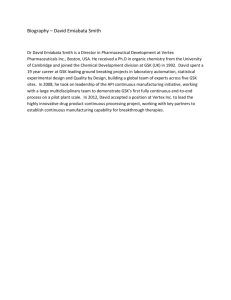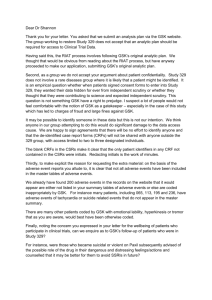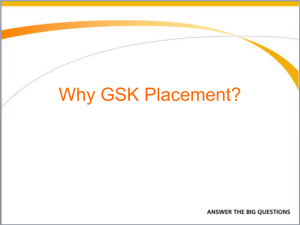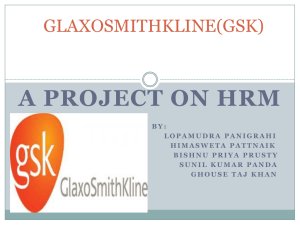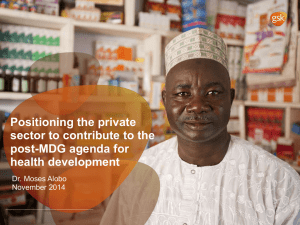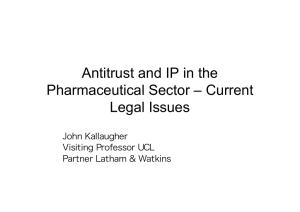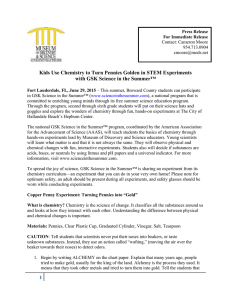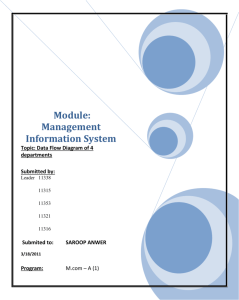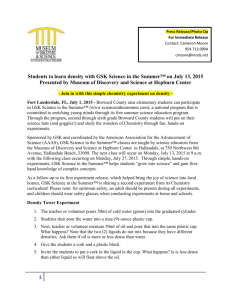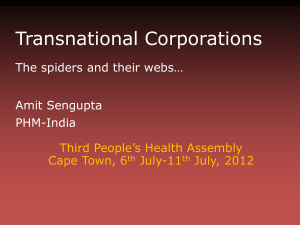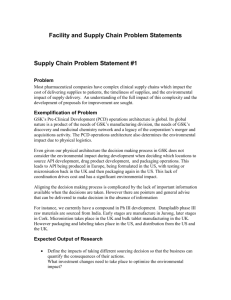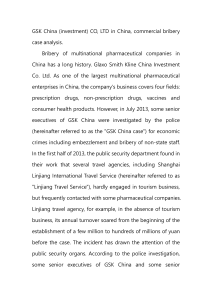to Shannon-29-October-2013
advertisement
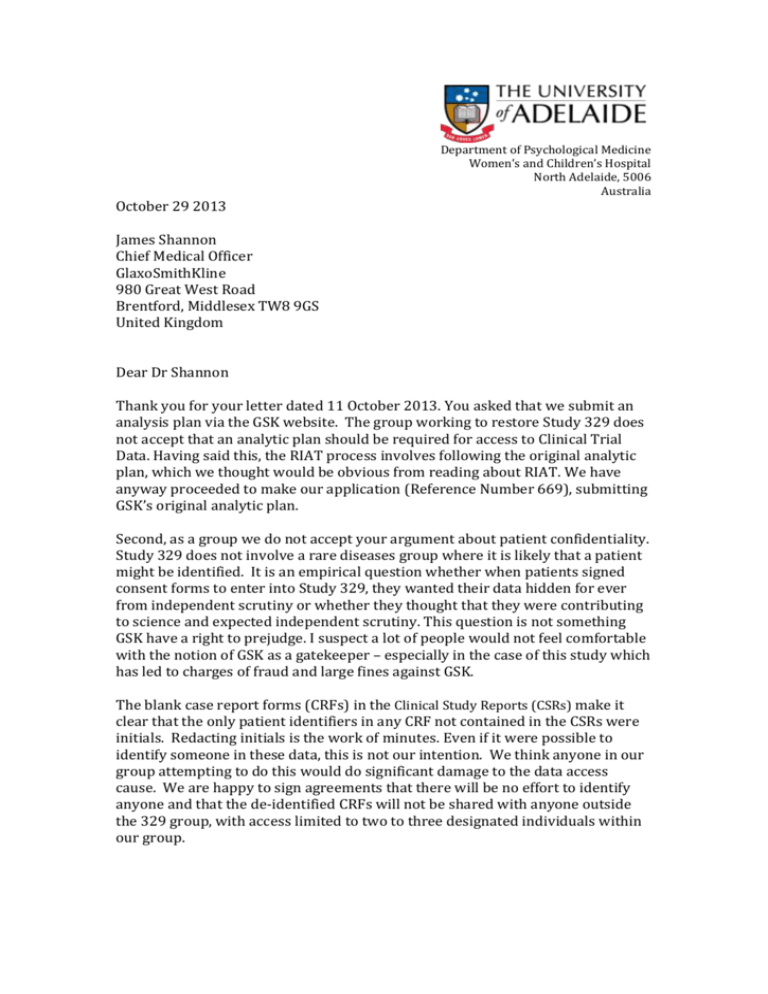
Department of Psychological Medicine Women’s and Children’s Hospital North Adelaide, 5006 Australia October 29 2013 James Shannon Chief Medical Officer GlaxoSmithKline 980 Great West Road Brentford, Middlesex TW8 9GS United Kingdom Dear Dr Shannon Thank you for your letter dated 11 October 2013. You asked that we submit an analysis plan via the GSK website. The group working to restore Study 329 does not accept that an analytic plan should be required for access to Clinical Trial Data. Having said this, the RIAT process involves following the original analytic plan, which we thought would be obvious from reading about RIAT. We have anyway proceeded to make our application (Reference Number 669), submitting GSK’s original analytic plan. Second, as a group we do not accept your argument about patient confidentiality. Study 329 does not involve a rare diseases group where it is likely that a patient might be identified. It is an empirical question whether when patients signed consent forms to enter into Study 329, they wanted their data hidden for ever from independent scrutiny or whether they thought that they were contributing to science and expected independent scrutiny. This question is not something GSK have a right to prejudge. I suspect a lot of people would not feel comfortable with the notion of GSK as a gatekeeper – especially in the case of this study which has led to charges of fraud and large fines against GSK. The blank case report forms (CRFs) in the Clinical Study Reports (CSRs) make it clear that the only patient identifiers in any CRF not contained in the CSRs were initials. Redacting initials is the work of minutes. Even if it were possible to identify someone in these data, this is not our intention. We think anyone in our group attempting to do this would do significant damage to the data access cause. We are happy to sign agreements that there will be no effort to identify anyone and that the de-identified CRFs will not be shared with anyone outside the 329 group, with access limited to two to three designated individuals within our group. Thirdly, to make explicit the reason for requesting the extra material: on the basis of the adverse event reports you allude to, it is clear that not all adverse events have been included in the master tables of adverse events. We already have found 200 adverse events in the records on the website that it would appear are either not listed in your summary tables of adverse events or else are coded inappropriately by GSK. For instance many patients, including 065, 113, 195 and 236, have adverse events of tachycardia or suicide related events that do not appear in the master summary. There are many other patients coded by GSK with emotional lability, hyperkinesis or tremor that as you are aware, would best have been otherwise coded. Finally, noting the concern you expressed in your letter for the wellbeing of patients who participate in clinical trials, can we enquire as to GSK’s follow-up of patients who were in Study 329? For instance, were those who became suicidal or violent on Paxil subsequently advised of the possible role of the drug in their dangerous and distressing feelings/actions and counselled that it may be better for them to avoid SSRIs in future? In the circumstances it is important to have access to the CRFs so that we can increase our confidence in the final codings that we arrive at. We seek your help in facilitating the prompt provision of data in response to our application. Yours sincerely Jon Jureidini Clinical Professor Discipline of Psychiatry jon.jureidini@adelaide.edu.au
